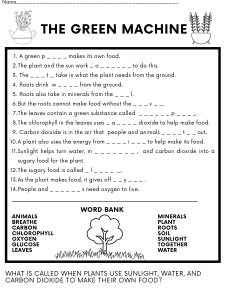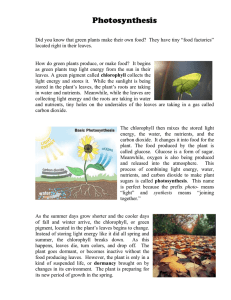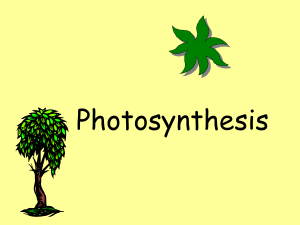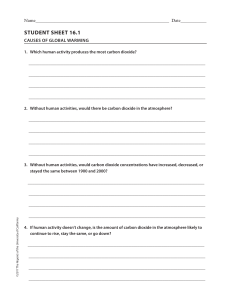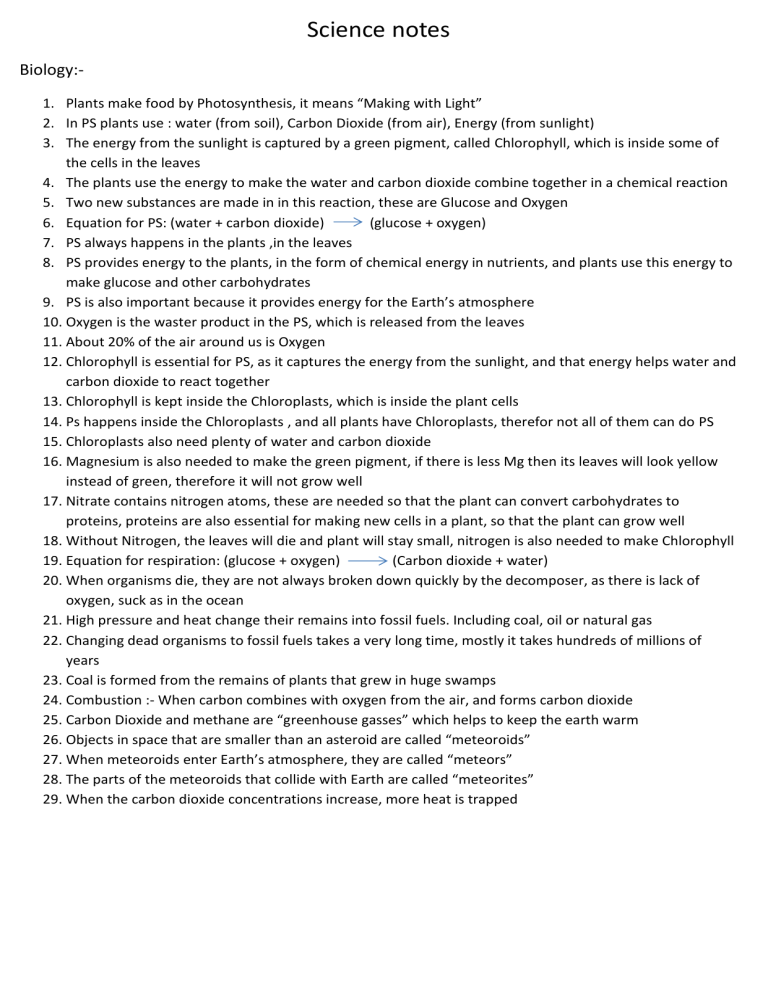
Science notes Biology:1. Plants make food by Photosynthesis, it means “Making with Light” 2. In PS plants use : water (from soil), Carbon Dioxide (from air), Energy (from sunlight) 3. The energy from the sunlight is captured by a green pigment, called Chlorophyll, which is inside some of the cells in the leaves 4. The plants use the energy to make the water and carbon dioxide combine together in a chemical reaction 5. Two new substances are made in in this reaction, these are Glucose and Oxygen 6. Equation for PS: (water + carbon dioxide) (glucose + oxygen) 7. PS always happens in the plants ,in the leaves 8. PS provides energy to the plants, in the form of chemical energy in nutrients, and plants use this energy to make glucose and other carbohydrates 9. PS is also important because it provides energy for the Earth’s atmosphere 10. Oxygen is the waster product in the PS, which is released from the leaves 11. About 20% of the air around us is Oxygen 12. Chlorophyll is essential for PS, as it captures the energy from the sunlight, and that energy helps water and carbon dioxide to react together 13. Chlorophyll is kept inside the Chloroplasts, which is inside the plant cells 14. Ps happens inside the Chloroplasts , and all plants have Chloroplasts, therefor not all of them can do PS 15. Chloroplasts also need plenty of water and carbon dioxide 16. Magnesium is also needed to make the green pigment, if there is less Mg then its leaves will look yellow instead of green, therefore it will not grow well 17. Nitrate contains nitrogen atoms, these are needed so that the plant can convert carbohydrates to proteins, proteins are also essential for making new cells in a plant, so that the plant can grow well 18. Without Nitrogen, the leaves will die and plant will stay small, nitrogen is also needed to make Chlorophyll 19. Equation for respiration: (glucose + oxygen) (Carbon dioxide + water) 20. When organisms die, they are not always broken down quickly by the decomposer, as there is lack of oxygen, suck as in the ocean 21. High pressure and heat change their remains into fossil fuels. Including coal, oil or natural gas 22. Changing dead organisms to fossil fuels takes a very long time, mostly it takes hundreds of millions of years 23. Coal is formed from the remains of plants that grew in huge swamps 24. Combustion :- When carbon combines with oxygen from the air, and forms carbon dioxide 25. Carbon Dioxide and methane are “greenhouse gasses” which helps to keep the earth warm 26. Objects in space that are smaller than an asteroid are called “meteoroids” 27. When meteoroids enter Earth’s atmosphere, they are called “meteors” 28. The parts of the meteoroids that collide with Earth are called “meteorites” 29. When the carbon dioxide concentrations increase, more heat is trapped

